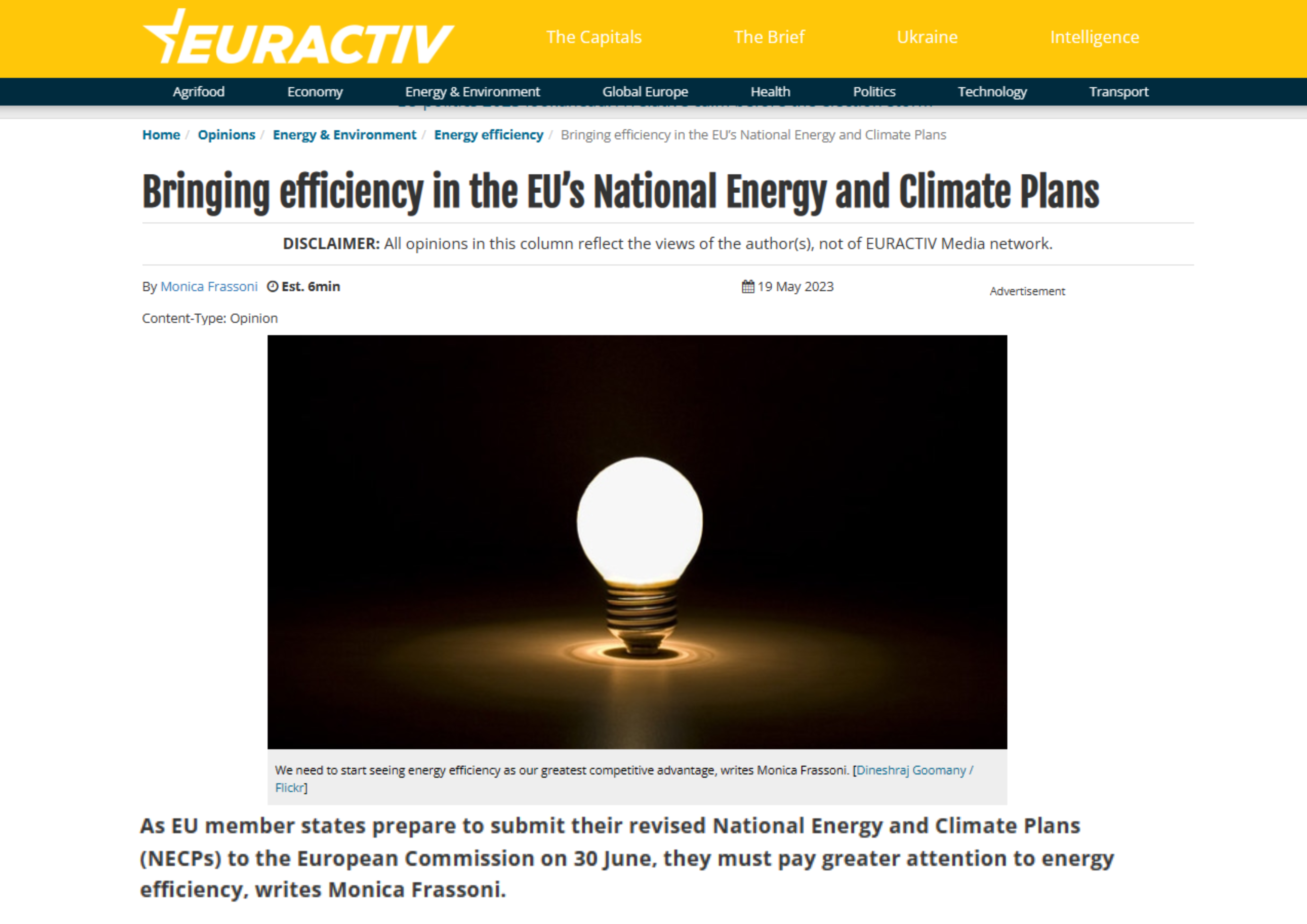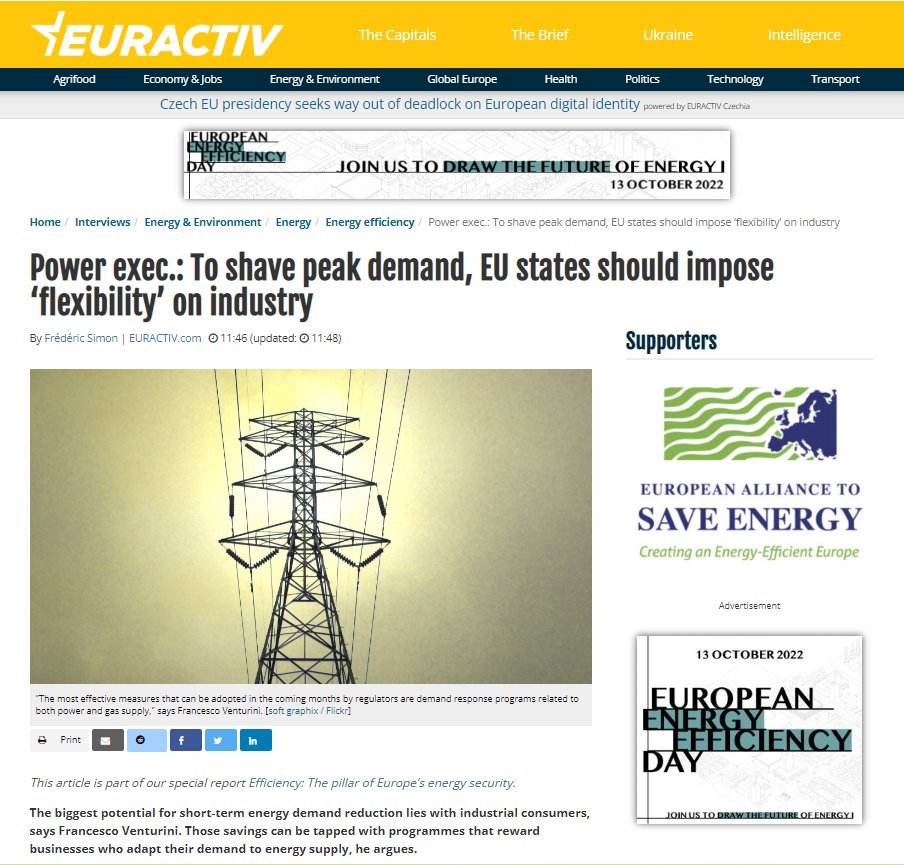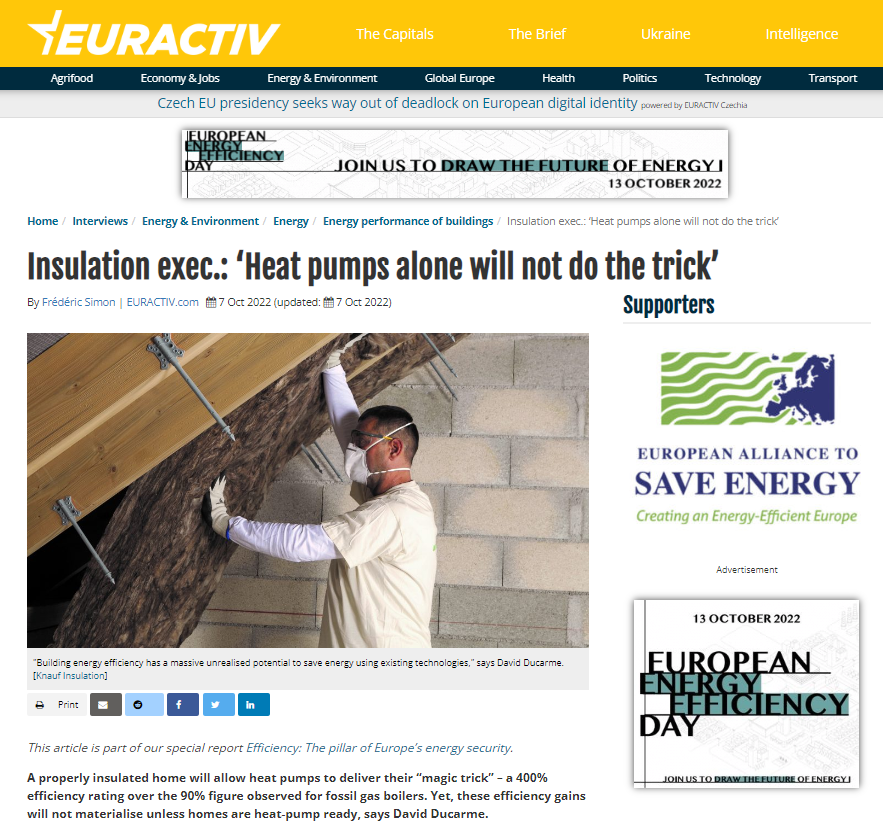Future of the Energy Union: bringing the transformative potential of energy efficiency in the National Energy and Climate Plans

As EU member states prepare to submit their revised National Energy and Climate Plans (NECPs) to the European Commission on 30 June, they must pay greater attention to energy efficiency, writes EU-ASE President Monica Frassoni in Euractiv.
A future energy system must be highly energy and resource efficient, based on renewables, secure, competitive, affordable and of course, safe. One that can respond to the climate, energy and water crises that increasingly perturb our economy and create social tensions.
Reducing energy needs and doing this through ready-to-use technologies and a system approach is key to success of Europe’s future energy union and the Green Deal. The Energy Efficiency community needs therefore to have a regular seat at the table.
This is not always the case.
Read the full article byMonica Frassoni in Euractiv.




